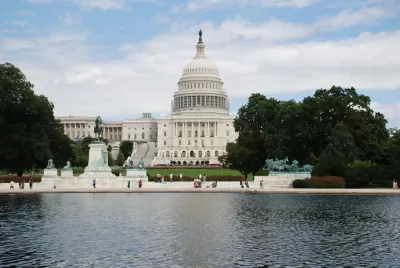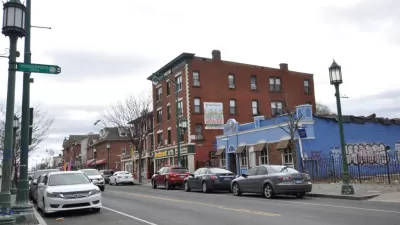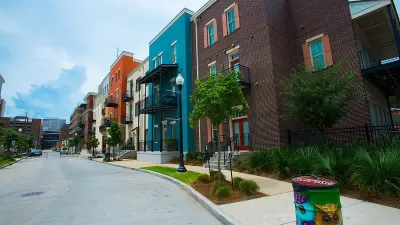If passed by the Senate, it would represent the most significant reform to the LIHTC in decades. Some say it’s still not enough.

Last month, the U.S House of Representatives passed a bill that would broaden the scope and accessibility of the low-income housing tax credit (LIHTC), reports Bianca Barragan in an article for Bisnow. Estimates project that the changes to the LIHTC within the Tax Relief for American Families and Workers Act would facilitate the creation of 200,000 new affordable housing units over the next few years.
The bill now goes to the Senate for consideration. If approved as written, it would:
- reinstate a 12.5 percent boost for the 9 percent version of the LIHTC that was implemented in 2018 but expired in 2021;
- allow states to allocate more credits for affordable housing projects, effective for taxable years beginning after Dec. 31, 2022; and
- lower the threshold of 4 percent state and local tax-exempt bond financing a project has to receive for its developer to qualify for the maximum credits to 30 percent instead of the current 50 percent.
With homelessness at record highs and the National Low-Income Housing Coalition finding that no state in the country has an adequate supply of affordable housing that the poorest renters can afford, affordable housing advocates say these proposed changes to the LIHTC are a “big deal,” writes Barragan. However, some say it doesn’t go far enough.
The National Low-Income Housing Coalition told Bisnow that even LIHTC-financed units are too expensive for the lowest income households and this legislation does nothing to address that. And the Federation of American Scientists recently called upon Congress to amend the federal code governing the program to require nonprofit developers to reinvest profits from LIHTC-funded properties into building more affordable units rather than spend it on other priorities not related to housing.
FULL STORY: 'This Is A Big Deal': LIHTC Could See Most Significant Reform In Decades

Planetizen Federal Action Tracker
A weekly monitor of how Trump’s orders and actions are impacting planners and planning in America.

Congressman Proposes Bill to Rename DC Metro “Trump Train”
The Make Autorail Great Again Act would withhold federal funding to the system until the Washington Metropolitan Area Transit Authority (WMATA), rebrands as the Washington Metropolitan Authority for Greater Access (WMAGA).

The Simple Legislative Tool Transforming Vacant Downtowns
In California, Michigan and Georgia, an easy win is bringing dollars — and delight — back to city centers.

The States Losing Rural Delivery Rooms at an Alarming Pace
In some states, as few as 9% of rural hospitals still deliver babies. As a result, rising pre-term births, no adequate pre-term care and "harrowing" close calls are a growing reality.

The Small South Asian Republic Going all in on EVs
Thanks to one simple policy change less than five years ago, 65% of new cars in this Himalayan country are now electric.

DC Backpedals on Bike Lane Protection, Swaps Barriers for Paint
Citing aesthetic concerns, the city is removing the concrete barriers and flexposts that once separated Arizona Avenue cyclists from motor vehicles.
Urban Design for Planners 1: Software Tools
This six-course series explores essential urban design concepts using open source software and equips planners with the tools they need to participate fully in the urban design process.
Planning for Universal Design
Learn the tools for implementing Universal Design in planning regulations.
Smith Gee Studio
City of Charlotte
City of Camden Redevelopment Agency
City of Astoria
Transportation Research & Education Center (TREC) at Portland State University
US High Speed Rail Association
City of Camden Redevelopment Agency
Municipality of Princeton (NJ)




























